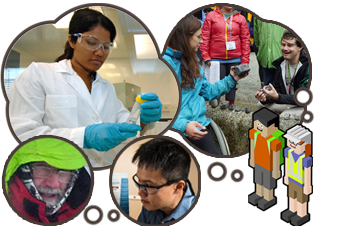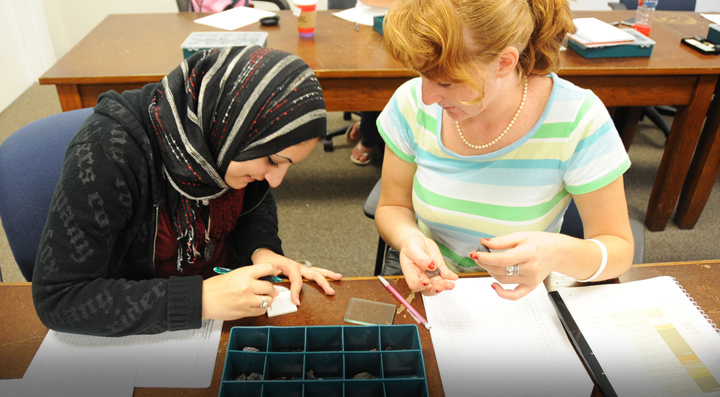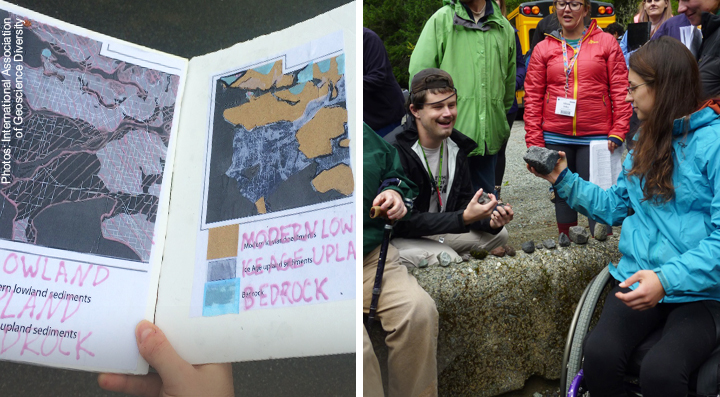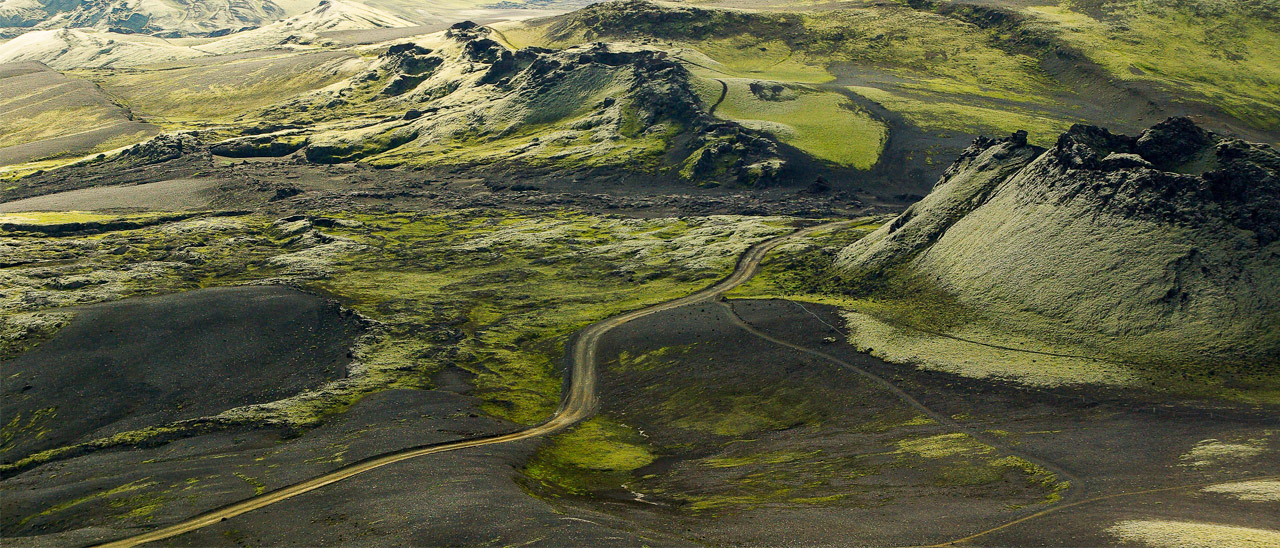Diversity & Equal Opportunities in Geoscience
Quick links: Gender Equality | Ethnicity | Sexual Identity | Disability | Social Mobility & Equal Opportunities
GSL Support for diversity, equality & inclusion
 As the UK professional body for geoscientists, the Geological Society is committed to supporting diversity in the Earth science community, with the goal that everybody should have the opportunity to fulfil their potential, regardless of disability, ethnicity, gender, sexual orientation, or any other characteristic.
As the UK professional body for geoscientists, the Geological Society is committed to supporting diversity in the Earth science community, with the goal that everybody should have the opportunity to fulfil their potential, regardless of disability, ethnicity, gender, sexual orientation, or any other characteristic.
In September 2014 the Society became a signatory to the Science Council’s Declaration on Diversity, Equality and Inclusion. (The Science Council is a membership organisation that brings together 40 scientific learned societies and professional bodies, including the Geological Society).
![]() Read the declaration in full on our diversity page.
Read the declaration in full on our diversity page.
The Equality Act came into force in the UK on 1 October 2010 , bringing together over 116 separate pieces of legislation into a single Act. This Act provides Britain with a new discrimination law protecting individuals from unfair treatment while promoting a fairer and more equal society.
Gender Equality
 Athena Swan awards
Athena Swan awards
The Equality Challenge Unit (ECU), a registered charity, works to further and support equality and diversity for staff and students in higher education institutions across the UK, as well as colleges in Scotland. It does this by encouraging an inclusive culture that values the benefits of diversity, removes barriers to progression and success for staff, and challenges and changes unfair practices. ECU’s equality charters enable organisations to apply for an award recognising their commitment to, and progress on, equality and diversity, particularly in race and gender.
The Athena SWAN Charter evolved from work between the Athena project and the Scientific Women's Academic Network (SWAN) with the specific aim of advancing the representation of women in science, technology, engineering and maths and (STEM). In May 2015 its charter was expanded to recognise work undertaken in the arts, humanities and other areas, and in professional and support roles, and for trans staff and students. The charter now recognises work undertaken to address gender equality more broadly, and not just barriers to progression that affect women.
Many UK university geoscience departments have now been awarded one or more of the Bronze, Silver and Gold stages of Athena SWAN that are available. Research institutes are now also eligible and the British Geological Survey gained Bronze status in 2013.
Some private sector employers, such as the Engineering Consultancy Arup, also have initiatives in place such as mentoring to increase diversity and support professional women.
![]() Find out about parental leave, and support for those returning from a career break
Find out about parental leave, and support for those returning from a career break
 Other Organisations
Other Organisations
Women in Earth Science, Technology and Engineering (WISE) is a membership body that campaigns for an increase in the numbers of women studying and building careers in STEM. It advises organisations on how to create environments where women can do their best work and thrive.
![]() ScienceGrrl is a broad-based, grassroots organisation celebrating and supporting women in science; a network of people who are passionate about passing on their love of science on to the next generation.
ScienceGrrl is a broad-based, grassroots organisation celebrating and supporting women in science; a network of people who are passionate about passing on their love of science on to the next generation.
L’Oréal-UNESCO Women in Science fellowships are awarded annually to support outstanding early career researchers.

Ethnicity
![]() The Equality Challenge Unit (ECU)’s Race Equality Charter (REC) works to improve the representation, progression and success of minority ethnic staff and students within higher education. The Charter provides a framework through which institutions work to identify and self-reflect on institutional and cultural barriers standing in the way of minority ethnic staff and students. Member institutions develop initiatives and solutions for action, and can apply for a Bronze or Silver REC award, depending on their level of progress.
The Equality Challenge Unit (ECU)’s Race Equality Charter (REC) works to improve the representation, progression and success of minority ethnic staff and students within higher education. The Charter provides a framework through which institutions work to identify and self-reflect on institutional and cultural barriers standing in the way of minority ethnic staff and students. Member institutions develop initiatives and solutions for action, and can apply for a Bronze or Silver REC award, depending on their level of progress.
Sexual Identity
Stonewall supports lesbian, gay, bi and trans (LGBT) people in and out of the workplace, partnering with organisations to create a more inclusive environment. Read their early careers guide 'Starting out'.
Other organisations work within specific job sectors, for example InterEngineering, a free and inclusive professional network for everyone who believes that LGBT diversity and inclusion within engineering is important.
Disability
The Geological Society hosted a conference in June 2015 on making fieldwork accessible to geologists with disabilities at all stages of their careers. Watch presentations from the meeting online.
The Society is also supporting a Sign Language Project being run by the Scottish Sensory Centre of the University of Edinburgh. This will result in a glossary of geological and geographical vocabulary in British Sign Language, for use in the education of deaf and hard of hearing students from Primary level through to Tertiary level.
![]() The International Association for Geoscience Diversity (IAGD) works to improve access to the geosciences for individuals with disabilities at all stages of their careers. It develops resources and fieldwork practices and promotes communities of inclusive research, instruction and student support.
The International Association for Geoscience Diversity (IAGD) works to improve access to the geosciences for individuals with disabilities at all stages of their careers. It develops resources and fieldwork practices and promotes communities of inclusive research, instruction and student support.
Diversity in Geoscience UK (DiG-UK) is the newly established UK chapter of the IAGD. It aims to expand the mission and vision of the IAGD while focusing specifically on the needs, values and resources in the UK. DiG-UK will undertake to broaden its responsibility beyond disability to cover wider aspects of diversity including, but not restricted to, gender, race and ethnicity, sexuality and social class.
![]() You can find DiG-UK on:
You can find DiG-UK on:
Diversity, equality & inclusion in Higher Education
The Equality Act applies to Higher Education institutions and all aspects of their activities:
"Your legal obligations to all your students cover all your services, facilities and benefits, both educational and non-educational, from teaching and learning to the physical environment, and any leisure and accommodation facilities. This is not an exhaustive list however and the education, benefits, services or facilities that you provide may differ from those at another institution or over time...”
However, it is important that you talk to course providers about your needs. Some points to investigate include:
- Does the support available meet your individual needs?
- How does the course provider currently support other students with a similar impairment?
- Can anyone help you with your application for Disabled Student Allowances (DSAs)?
- Are you required to submit proof of your disability – if so what will be required?
- If you feel the need to nominate a third party to discuss matters with a course provider, can this be done?
Resources and advice
There is extensive advice about many disabilities on most university websites. There is also useful material on the websites of the large professional bodies, such as the Institute of Physics.
![]() The UCAS webpage Students with disabilities has further in-depth guidance for students with disabilities.
The UCAS webpage Students with disabilities has further in-depth guidance for students with disabilities.
Disability Rights UK’s Factsheet has more information regarding funding higher education for disabled students.




